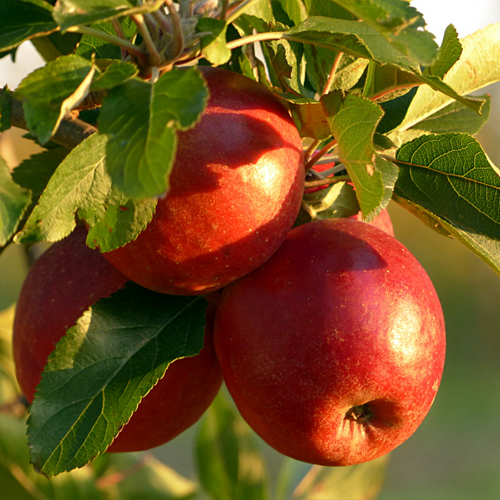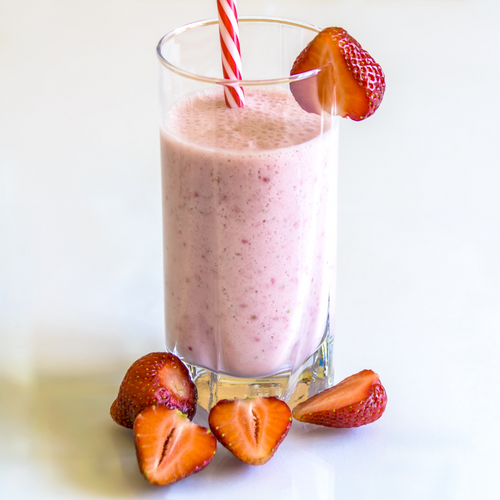#1 – Hydrate and eat hungry
To begin, let's remember that not feeling hungry in the morning is completely normal. It's even partly physiological. At night, our body secretes leptin, an “appetite suppressant” hormone that prevents us from getting up to eat. When you wake up, the effects of leptin dissipate, but gradually. The dinner the day before also plays a role: if it was very hearty, it is natural not to be hungry when you get up. So if you're not hungry, don't eat! The first thing to do when waking up is to hydrate. Then, wait until you're really hungry (and not just want to eat) to eat breakfast. Hunger can arrive 30 minutes after getting up or 4 hours later, we are all different!
#2 – Choose the right foods
There are 3 rules to follow so that your breakfast provides you with the nutrients your body needs until lunch:
-
Raw and natural foods: during breakfast, as its name suggests, we break the fast. It is therefore important to provide foods that are as raw as possible and to avoid saturated, unsaturated or hydrogenated fatty acids, which are found in particular in industrial products such as cakes, sandwich bread, etc.
-
Proteins: proteins provide tyrosine, the amino acid which allows us to synthesize dopamine, the “starter” hormone of our body, the one which allows us to be motivated and get off to a good start in the morning. This amino acid is found in proteins, whether animal (eggs, cheese or yogurt made from goat's or sheep's milk, smoked salmon, etc.) or vegetable (avocado, hummus, raw oilseeds or in the form of puree, chia seeds …).
-
Carbohydrates with a low or moderate glycemic index (GI): sugar consumed in excess greatly raises blood sugar levels and leads to significant insulin synthesis, in order to maintain blood sugar levels at normal values. The synthesis of excess insulin leads to reactive hypoglycemia, that is to say that the blood sugar level drops suddenly: fatigue and urgent hunger guaranteed! We must therefore avoid consuming products with a high glycemic index on a daily basis: in particular industrial products (spread, jam, cereals, sandwich bread, etc.), but also anything made from white flour, particularly white bread. , including a fresh baguette from the bakery. The ideal is to favor sourdough bread, with raw flour (old wheat, spelled or buckwheat for example).
#3 – Eat sweet with the right food combinations
If you are not at all salty, there are sweet alternatives that allow you to respect the 3 main rules mentioned above. For example, miam ô fruit meets these 3 criteria with a crushed banana (moderate GI carbohydrate), 1 teaspoon of linseed oil (very rich in omega 3), a handful of oilseeds (vegetable proteins) and possibly a few pieces of fresh fruit. Other possibilities: good sourdough bread made from einkorn or buckwheat flour spread with almond or hazelnut puree, a chia seed pudding, or simply 1 to 2 fruits, a handful of oilseeds and yogurt vegetal.
#4 – Avoid fruit juices
Freshly squeezed juice provides a good dose of vitamin C, but no longer contains fiber. Fiber slows down the absorption of sugar into the blood, so blood sugar levels will rise very quickly, which can lead to reactive hypoglycemia (see start of the article). Juice from the extractor will be beneficial for its intake of chlorophyll (green vegetables), vitamins and minerals, provided that it is composed of 70-80% vegetables and 30-20% fruits.
#5 – What about coffee?
Yes, but reasonably. That is to say no more than one or two per day and ideally in the middle of the morning when the cortisol level decreases, while it is at its highest level upon waking up. For people who are particularly stressed or prone to excess acidity, coffee should be avoided. You can replace it with Yannoh, chicory or cocoa infusions. Find all the alternatives in our dedicated article.
Find all of Cécile Pétureau ’s advice on Instagram and Facebook .

















